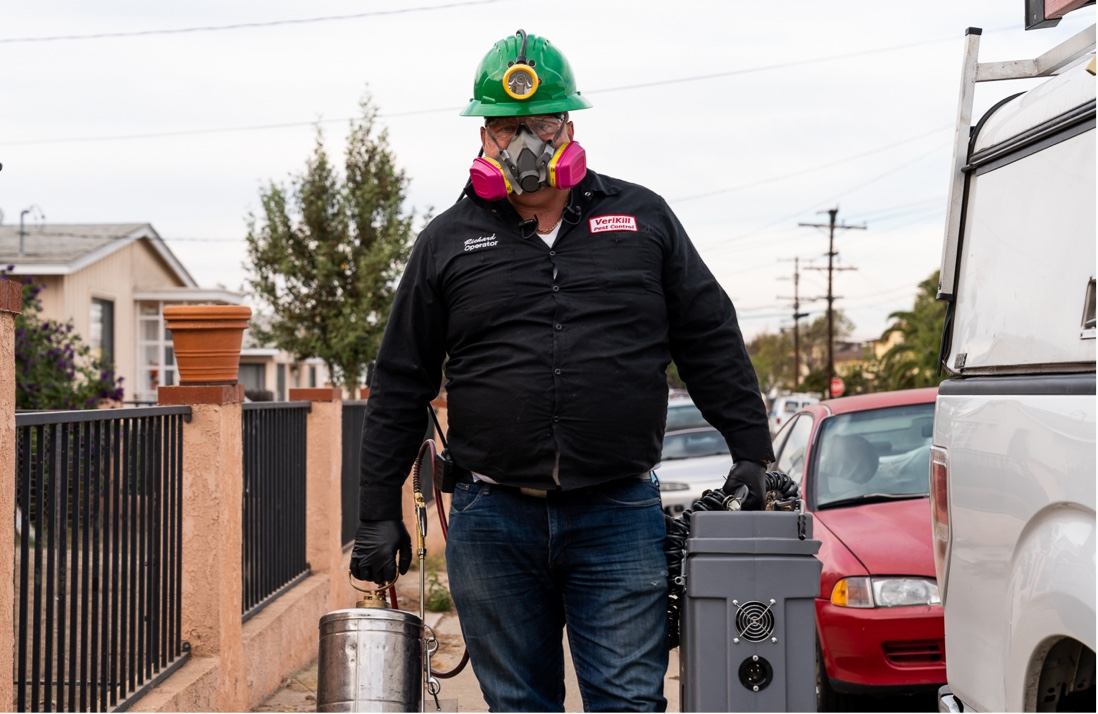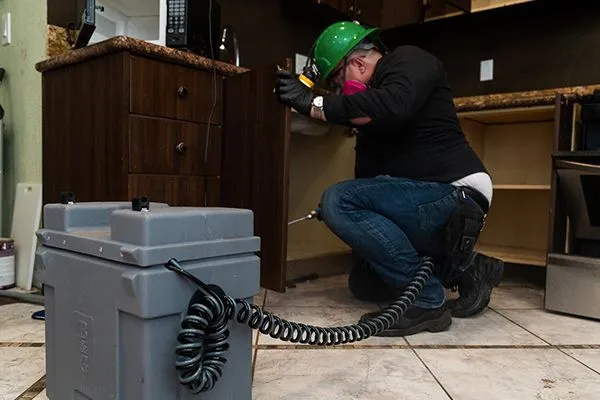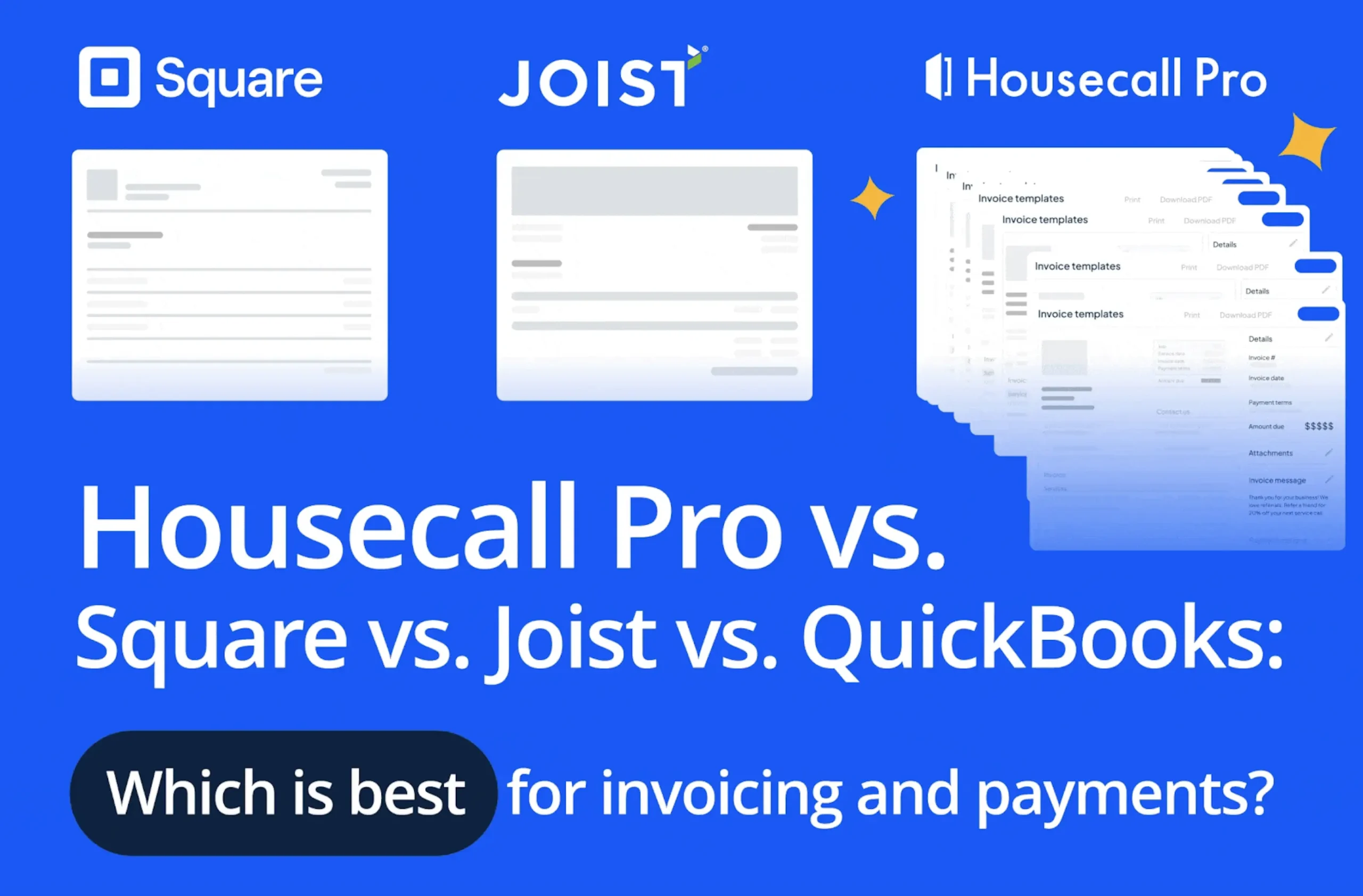
Pest control is one of the fastest-growing industries in the country today, with a value of more than USD 20 billion. Not only that, but pest control professions have seen some of the highest pay jumps in 2024, with earnings increasing by 13.5% year-on-year, according to a Smart Asset analysis.
If you’re considering a career as a pest control specialist, now is the perfect time to get your foot in. The good news is that we’ve compiled and analyzed relevant salary data from thousands of job listings and industry reports to create the ultimate pest control salary guide for you.
To give you a sense of the average pest control salary for technicians in different locations, we scraped data from thousands of salary reports and job postings, sorted it, analyzed it, and brought it here for you.
Average hourly rate of pest control technicians across each U.S. state (2024)
A pest control technician in the United States can earn approximately $19.56 per hour in 2024, as per the most recent data from Indeed. The lowest hourly wage is $13.1, while the highest average hourly wage is reported to be $28.96.
The average salary for pest control technicians varies according to several factors, including location, work designation, skillset, and demand for pest control solutions. For example, the average hourly salary of a pest control technician was $23.16 in California, while it averaged $17.46 in Alabama.
| State | Hourly Wage |
| Alabama | $17.46 |
| Alaska | $20.96 |
| Arizona | $19.86 |
| Arkansas | $16.90 |
| California | $23.16 |
| Colorado | $20.77 |
| Connecticut | $20.75 |
| Delaware | $21.84 |
| District of Columbia | $23.75 |
| Florida | $21.83 |
| Georgia | $18.66 |
| Hawaii | $21.68 |
| Idaho | $19.92 |
| Illinois | $19.32 |
| Indiana | $19.80 |
| Iowa | $20.17 |
| Kansas | $19.15 |
| Kentucky | $18.80 |
| Louisiana | $18.17 |
| Maine | $21.13 |
| Maryland | $21.07 |
| Massachusetts | $21.08 |
| Michigan | $20.45 |
| Minnesota | $19.88 |
| Mississippi | $16.48 |
| Missouri | $19.66 |
| Montana | $23.16 |
| Nebraska | $19.82 |
| Nevada | $18.61 |
| New Hampshire | $20.97 |
| New Jersey | $20.99 |
| New Mexico | $24.80 |
| New York | $21.81 |
| North Carolina | $18.50 |
| Ohio | $19.55 |
| Oklahoma | $17.63 |
| Oregon | $21.31 |
| Pennsylvania | $20.70 |
| Rhode Island | $21.71 |
| South Carolina | $18.68 |
| South Dakota | $19.68 |
| Tennessee | $18.93 |
| Texas | $16.58 |
| Utah | $21.25 |
| Vermont | $20.88 |
| Virginia | $20.16 |
| Washington | $23.00 |
| West Virginia | $19.30 |
| Wisconsin | $20.75 |
| Wyoming | $19.43 |
How much do pest control exterminators make per month?
According to December 2024 data from ZipRecruiter, the average salary for a pest exterminator in the U.S. is $3,733 per month. The lowest amount a technician can make in a month is $3,000, while some technicians earn as much as $4,375 monthly.
You can attribute the disparity in the average monthly pay to several factors, including the market in which you operate, the level of competition in the area, your qualifications, and the type of pest problems in your region.
Although pest control technicians can enter the field with just a high school diploma, those with an Associate’s or Bachelor’s degree in biology or entomology could potentially earn at least 30% more. Similarly, you may have a higher salary potential in areas with high cost of living, such as major cities and towns, earning between 20% to 50% more than in rural areas.
How much does a pest control tech make annually in the United States in 2024?
| State | Annual Salary |
| Alabama | $43,440 |
| Alaska | $52,145 |
| Arizona | $49,411 |
| Arkansas | $42,051 |
| California | $57,636 |
| Colorado | $51,656 |
| Connecticut | $51,661 |
| Delaware | $54,328 |
| Florida | $54,300 |
| Georgia | $45,905 |
| Hawaii | $53,925 |
| Idaho | $49,535 |
| Illinois | $48,063 |
| Indiana | $49,244 |
| Iowa | $50,227 |
| Kansas | $47,639 |
| Kentucky | $46,777 |
| Louisiana | $45,474 |
| Maine | $52,571 |
| Maryland | $52,349 |
| Massachusetts | $52,381 |
| Michigan | $50,936 |
| Minnesota | $49,451 |
| Mississippi | $41,007 |
| Missouri | $48,916 |
| Montana | $57,616 |
| Nebraska | $49,548 |
| Nevada | $46,284 |
| New Hampshire | $52,158 |
| New Jersey | $52,218 |
| New Mexico | $61,705 |
| New York | $54,217 |
| North Carolina | $46,005 |
| North Dakota | $55,286 |
| Ohio | $48,639 |
| Oklahoma | $43,858 |
| Oregon | $52,865 |
| Pennsylvania | $51,510 |
| Rhode Island | $53,181 |
| South Carolina | $46,476 |
| South Dakota | $48,962 |
| Tennessee | $47,116 |
| Texas | $41,261 |
| Utah | $52,863 |
| Vermont | $51,935 |
| Virginia | $50,141 |
| Washington | $57,122 |
| West Virginia | $48,004 |
| Wisconsin | $51,622 |
| Wyoming | $48,324 |
According to Indeed’s 2024 salary data, the United States’ average annual pest control salary is $48,663. However, several states in the country outperform the national average. For example, the highest average annual pest control salary in New Mexico is nearly $13,000 higher, at $61,705.
The lowest is approximately $7,500 lower, at $41,007 in Mississippi. Other high-paying statewide locations include California and Washington, most likely due to their larger urban centers, higher cost of living, and population density.
Even mid-tier states like Pennsylvania ($51,510) and Maine ($52,571) offer competitive salaries.
Top states for pest control salaries
- New Mexico – $61,705
- Montana – $57,616
- California – $57,636
- Washington – $57,122
- Alaska – $52,145
States with the lowest pest control salaries
- Mississippi – $41,007
- Texas – $41,261
- Arkansas – $42,051
- Alabama – $43,440
- Oklahoma – $43,858
Top paying cities for pest control employees
Geography makes a huge difference in the paycheck you receive. Let’s explore what pest control professionals can expect to earn on average in a major city in each state.
| State | City | Median Annual |
| Alabama | Birmingham | $43,587 |
| Alaska | Anchorage | $48,946 |
| Arizona | Phoenix | $50,516 |
| Arkansas | Little Rock | $39,693 |
| California | San Francisco | $66,113 |
| Colorado | Denver | $53,464 |
| Connecticut | Bridgeport | $50,982 |
| Delaware | Wilmington | $51,643 |
| Florida | Orlando | $49,014 |
| Georgia | Atlanta | $52,970 |
| Hawaii | Honolulu | $53,953 |
| Idaho | Boise | $51,352 |
| Illinois | Chicago | $50,245 |
| Indiana | Indianapolis | $50,885 |
| Iowa | Des Moines | $43,270 |
| Kansas | Wichita | $43,228 |
| Kentucky | Louisville | $49,865 |
| Louisiana | New Orleans | $47,538 |
| Maine | Portland | $56,309 |
| Maryland | Baltimore | $54,987 |
| Massachusetts | Boston | $55,006 |
| Michigan | Detroit | $48,684 |
| Minnesota | Minneapolis | $56,062 |
| Mississippi | Jackson | $37,540 |
| Missouri | Kansas City | $53,185 |
| Montana | Billings | $62,142 |
| Nebraska | Omaha | $49,389 |
| Nevada | Las Vegas | $43,035 |
| New Hampshire | Manchester | $52,690 |
| New Jersey | Newark | $59,601 |
| New Mexico | Albuquerque | $46,363 |
| New York | New York City | $56,845 |
| North Carolina | Charlotte | $50,143 |
| North Dakota | Fargo | $53,644 |
| Ohio | Columbus | $43,013 |
| Oklahoma | Oklahoma City | $46,012 |
| Oregon | Portland | $56,309 |
| Pennsylvania | Philadelphia | $53,490 |
| Rhode Island | Providence | $52,122 |
| South Carolina | Columbia | $45,621 |
| South Dakota | Sioux Falls | $45,549 |
| Tennessee | Knoxville | $45,473 |
| Texas | Houston | $41,044 |
| Utah | Salt Lake City | $56,973 |
| Vermont | Burlington | $51,294 |
| Virginia | Richmond | $52,496 |
| Washington | Seattle | $59,755 |
| West Virginia | Charleston | $28,368 |
| Wisconsin | Milwaukee | $51,883 |
| Wyoming | Cheyenne | $49,552 |
Cities offering the highest Pay to pest control technicians
- San Francisco, California – $66,113
- New York City, New York – $56,845
- Seattle, Washington – $59,755
- Newark, New Jersey – $59,601
- Portland, Oregon – $56,309
Cities with the lowest pest control income
- Charleston, West Virginia – $28,368
- Jackson, Mississippi – $37,540
- Oklahoma City, Oklahoma – $46,012
- Albuquerque, New Mexico – $46,363
- Orlando, Florida – $49,014
The pest control career ladder (and how much each role pays)

Not all pest control roles are created equal. For example, did you know that commercial pest control technicians can earn slightly more than their residential counterparts? This is primarily due to the complexity of tasks and the broader scope of operations involved in the former, among other things.
The median pay for an entry-level pest control worker and a licensed applicator will also differ significantly. To help you understand this wage gap better, let’s explore each step of the pest control career path in detail, from aspiring industry entrants to experienced business owners.
Entry-level pest control salary
Anyone with a high school diploma or an equivalent degree and little to no industry experience can apply for this role. Entry-level pest control technicians take on an assistive role to learn the ropes of the industry and gain hands-on training on the job. Their tasks include assisting senior technicians, learning safety procedures, identifying types of pest control methods, and maintaining equipment.
According to salary data from ZipRecruiter, this is how much entry-level positions pay:
- Hourly: $20.65/hour, depending on the state
- Monthly: Around $2,083–$5,000
- Annual salary: $25,000–$60,000
Experienced pest control technician salary
These technicians have at least two to four years of hands-on experience in the field. They have a better lay of the landthan newcomers, making them skilled at managing inspections, administering treatments, and interacting with customers. Data from Glassdoor has experienced technicians earning:
- Hourly: $23.08/hour
- Monthly: $4,800–$6,500
- Annual salary: $50,000–$78,000
Licensed pest control applicator salary
Anyone above 18 years of age certified to administer or supervise pesticide use is suitable for this role.
What’s required?
Advanced certifications and compliance with state-specific regulations. Certified pesticide applicators can expect to earn an average annual salary of:
- Annual salary: $36,368–$44,785
Who earns the most? Licensed applicators working in the commercial pest control sector, especially in large urban areas with high recurrent demand, enjoy higher salaries.
Learn more: Pest control licensing requirements by state
Pest control inspector salary
This role involves conducting thorough inspections for pest infestations, identifying the type of infestation, and creating detailed plans for extermination. They may also need to document findings, maintain records for follow-ups, and ensure that their recommended solutions comply with regulatory standards.
Pest control inspectors’ potential earnings range from:
- Annual base salary: $51,000–$93,000
Professionals in high-demand states such as California and Arizona earn up to $70,000/year.
Pest control manager salary
Knowledgeable leaders and supervisors with several years of pest-control management experience fit this role. They supervise technician teams, oversee compliance, and ensure customer satisfaction. Ideally, they should have worked their way up from a technician to an inspector’s role.
- Annual salary: $82,000–$137,000
Larger operations or commercial managers can earn up to $90,000+.
Pest control business owner
Pest control business owners manage their company’s day-to-day operations, from assigning and scheduling jobs to devising strategies to generate more revenue. You’re most likely to thrive as a pest control company owner if you have both technical acumen and business management skills.
- Annual salary: $66,000+ depending on business size. This may increase with additional pay coming from commissions and bonuses.
Pest control entrepreneurs in metropolitan areas may earn more than their less-urban counterparts, with salaries exceeding $104,000 annually.
Can you make a living in pest control?
You can make a good living as a pest control service technician, and the reason is simple: consistent demand. No matter where you live, commercial and residential sectors depend on exterminators to keep pests and vermin at bay.
The demand for services such as mosquito, bug, and termite control, pest removal and extraction, and even prevention is steady and recurring. Pest control businesses typically require a small capital to start up, keeping overhead costs and expenditures to a minimum. Coupled with the right processes and a steady clientele, many exterminator startups grow into profitable businesses that can afford to compensate workers with the right skills well.
These factors ensure a stable career path and strong revenue potential for workers at any level—whether you’re an aspiring entry-level worker breaking into the industry or an entrepreneur launching a pest control business. Finally, the pest control industry’s growth trajectory is upward, with a CAGR of 5.4% by 2028.
Why pest control is a smart career choice
Besides being a lucrative business, the pest control industry offers several advantages to its workers. Here’s why you should consider pest control as a career choice:
- Low barrier to entry: The pest control industry provides one of the easiest entry points—even for those without a formal college education. If you’re eager to learn the ropes on the job, you can start with so much as a high school diploma or an equivalent degree.
- Stability: Global warming has triggered a dramatic increase in pest populations around the world. As the planet’s temperature continues to rise, so will the reproductive capacity of insects. This presents a global challenge that the pest control industry is best equipped to address.
- Growth potential: Pest control workers can fast-track their careers by obtaining certifications from institutes such as the National Pest Management Association (NPA). You’re also more likely to earn higher if you obtain a license for pest control application or pursue certifications in niche pest treatments, such as termite, bedbug, or eco-friendly methods. From there, you can swiftly advance to a supervisory or managerial role, opening the door to higher pay and more opportunities.
- Entrepreneurial opportunities: Pest control technicians with significant industry experience often advance to business ownership. If you have an entrepreneurial mindset, you can leap and build your own pest control business, even if that means starting small in your local community and gradually expanding to surrounding areas. The right marketing strategies can help you secure a loyal client base in your neighborhood.
Final takeaways
While this data primarily represents averages throughout the United States from different sources, it does reveal a significant amount of useful information. With the average pest control salary being approximately $46,342 a year (with many jobs available above that amount), it demonstrates that pest control is a relatively well-paying job.
Additionally, if you own a pest control business, this data can be helpful when it comes to setting competitive salaries, evaluating your personal salary, and determining what sorts of pay increases you might be able to expect in the future.
While there is certainly a variety of salaries across the states; clearly, the pest control industry is doing well. And as long as pests are a problem, there will always be a need for pest control technicians (lucky you!).
Pest Control Salary FAQ
-
How much more do commercial pest control technicians earn?
-
Commercial pest control technicians earn more than those working in the residential sector. Commercial pest control customers require technicians to work in larger environments such as office buildings, warehouses, restaurants, and hotels. As a result, their job is more specialized, requiring them to manage and operate larger equipment, coordinate with extensive pest control systems, and adhere to specific safety protocols and standards. These variables contribute to higher pay.
-
Can you earn six figures in pest control?
-
Yes, you can earn more than six figures as the pest control industry can be rewarding and lucrative. This is especially true for workers in higher-level positions such as senior managers, inspectors, and business owners. Business owners are among the top earners, often walking home with annual salaries of $100,000 or more. This figure may vary depending on their business size, how they manage their business, the area they serve, and the services they offer. Niche services such as eco-friendly pest-control methods and wildlife removal typically generate a higher revenue.
-
What’s the highest-paying role in pest control?
-
Pest control business owner is the highest paying role in the industry, with the potential to earn up to $180,855 (EBITDA), i.e., nearly 45% of the operational profit margin on average. Pest control business owners can set their own pricing, expand their service offerings to meet market demand, and establish multiple locations. Once you build a loyal customer base and find reliable software to manage your processes, you’ll be able to run a profitable pest control business that pays six-figure salaries well above the industry average.






